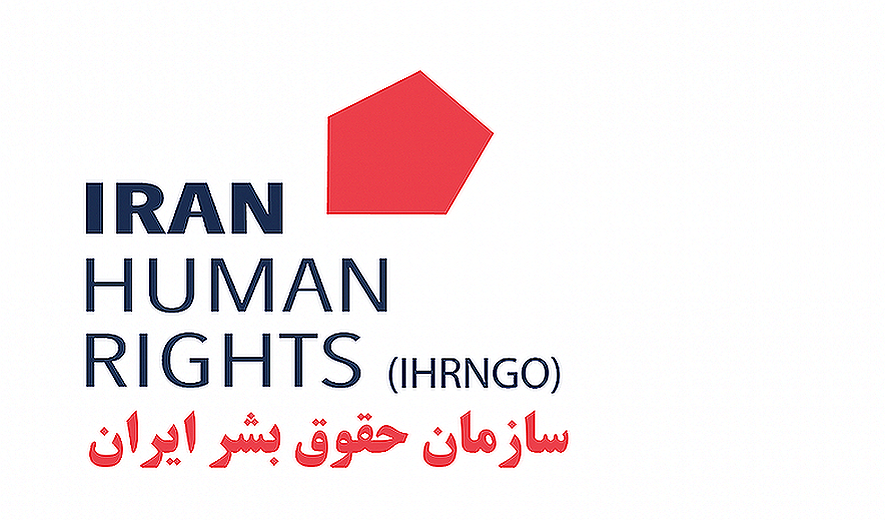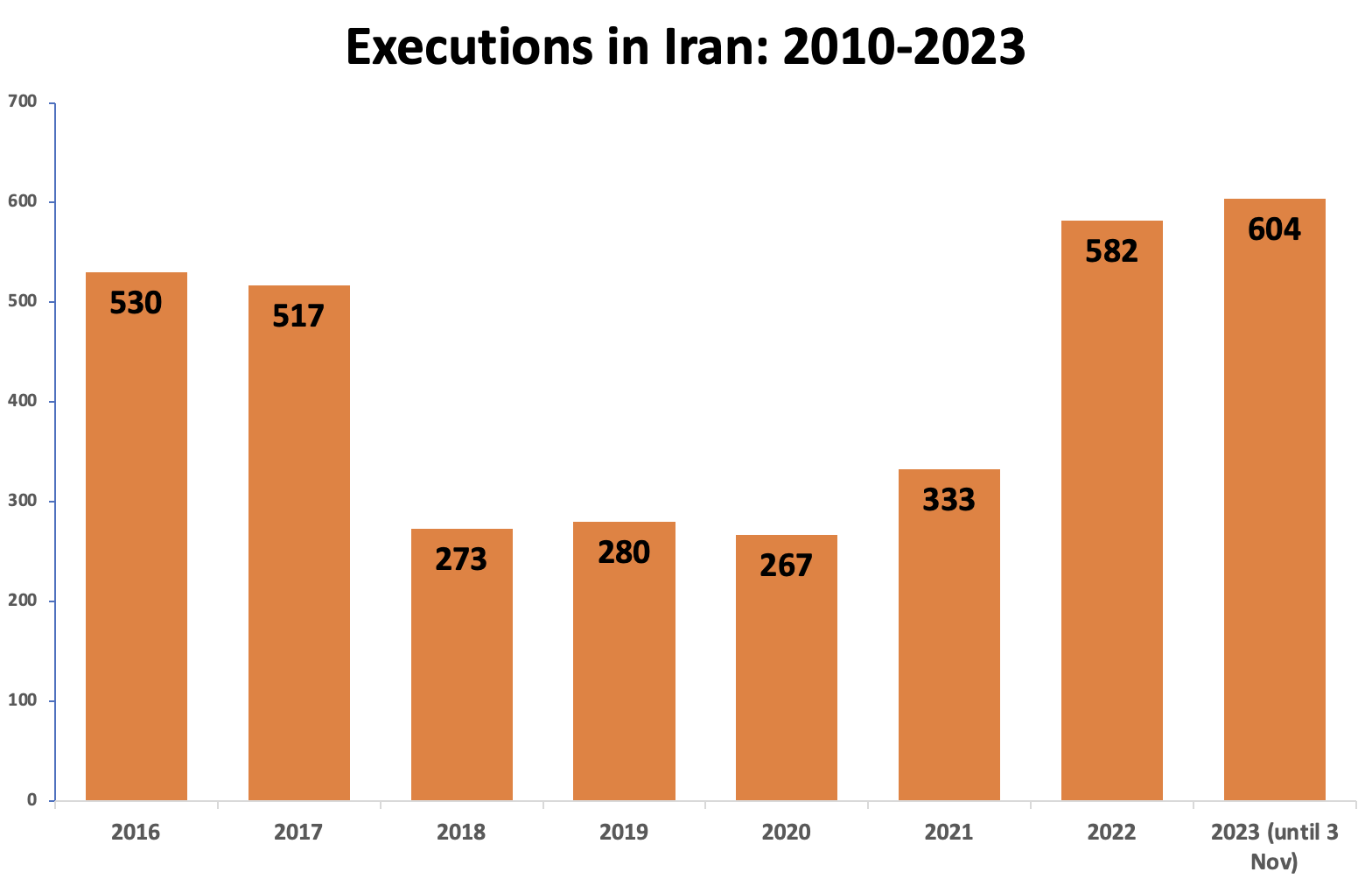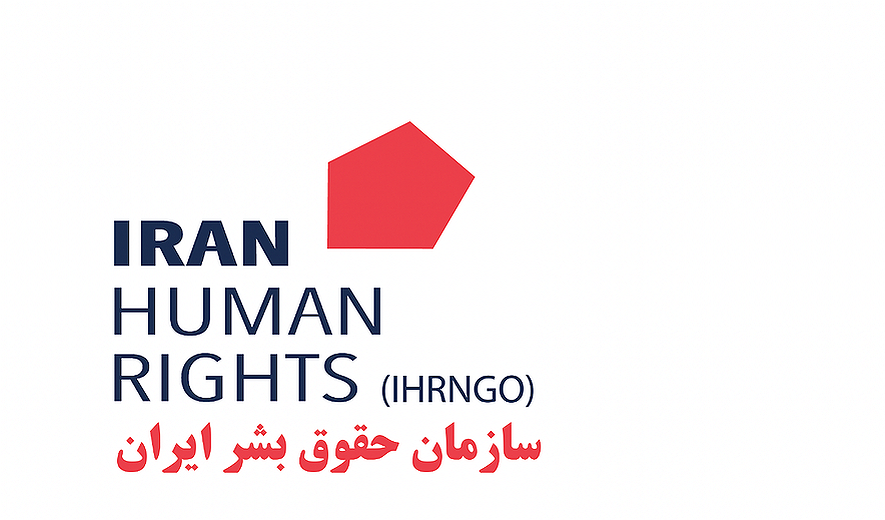At Least 604 Executions in 10 Months; 9 in a Day in Ghezel Hesar Prison

Iran Human Rights (IHRNGO); November 3, 2023: Seven prisoners, most of whom were on death row for murder, were executed in Ghezel Hesar Prison on 1st November. IHRNGO previously reported the execution of two other men including an Afghan national at the prison that day. With two months still remaining in 2023, the number of recorded annual executions has surpassed 600 for the first time since 2016.
Underscoring the fact that more than 600 executions in the first 10 months is unprecedented in the last eight years, Iran Human Rights urges the international community to condemn the arbitrary executions carried out by the Islamic Republic in the strongest possible terms.
Director, Mahmood Amiry-Moghaddam said: “The international community must react to more than 600 executions in 10 months, that’s two state murders a day, by a UN Member State that also chairs the UN Human Rights Council Social Forum. Silence is indirect consent to these crimes.”

According to information obtained by Iran Human Rights, nine men were executed in Ghezel Hesar Prison in Karaj on 1st November. Yadollah Farokhi and Afghan national, Sadegh Tajik were previously reported to have been executed at the prison that day. Newly obtained information reveals that Mohammad Ghobadi and two men only identified as Mani and Abolfazl (surnames unknown) who were sentenced to qisas (retribution-in-kind) for murder, were also executed that day.
HRANA news agency which also reported five of the executions, identified three of the men as Ehsan Hadad, Abbas Anaraki and Behrouz (surname unknown). Ehsan and Abbas were on death row for murder and Behrouz for rape or murder charges.
The ninth man’s identity has not been established at the time of writing.
An informed source told Iran Human Rights: “The prisoners were transferred for execution in a group of 15 from mainly Unit 3. Six of the men weren’t executed and returned to their cells. The death row prisoners at that unit have been sentenced to death for murder or rape charges and were transferred to Ghezel Hesar Prison from Rajai Shahr Prison after it closed.”
At the time of writing, none of their executions have been reported by domestic media or officials in Iran.
Kurdish-Sunni prisoner, Ghasem Abasteh who was sentenced to death for charges of moharebeh (enmity against god) and efsad-fil-arz (corruption on earth) through “armed resistance and membership in a Salafi jihadi group” was also transferred to solitary confinement and is at risk of execution.
Those charged with the umbrella term of “intentional murder” are sentenced to qisas (retribution-in-kind) regardless of intent or circumstances due to a lack of grading in law. Once a defendant has been convicted, as the plaintiffs, the victim’s family are required to choose between death as retribution, diya (blood money) or forgiveness.


